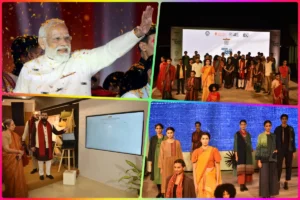
Supreme Court's Progressive Judgments
The Supreme Court of India ruled on Wednesday that a Muslim woman divorcee is entitled to maintenance from her husband even after the divorce under Section 125 of the Code of Criminal Procedure. The court stated that it is a right rather than a charity when giving the verdict. This is one of several Supreme Court verdicts that have empowered Muslim women in India.
The bench of Justices BV Nagarathna and Augustine George Masih ruled that the legislation on demanding maintenance would apply to all Muslim women, not just married women.
The Supreme Court also ruled that the Muslim Women (Protection of Rights on Divorce) Act 1986, enacted by the Rajiv Gandhi government in reaction to the Shah Bano judgement of 1985, shall not take precedence over secular law.
As a result, this verdict will have a tremendous impact on Muslim women’s rights in India, as it marks a watershed moment in their struggle for equal rights and empowerment. In addition to the current decision, numerous major Supreme Court decisions have moulded the long and laborious journey thus far.
These are major judgements that have helped shape the legality of Muslim women’s rights in India.
SHAH BANO CASE AND THE 1986 LAW BY RAJIV GANDHI GOVT
The Shah Bano case, determined in 1985, represented a watershed point in the history of Muslim women’s rights in India.
Shah Bano, a divorced Muslim woman, petitioned for support against her husband, Mohammed Ahmed Khan. The Supreme Court found in her favour, awarding her the right to maintenance under Section 125 of the Criminal Procedure Code. This decision provoked significant criticism, with several Muslim organisations, lawmakers, and clerics claiming that it violated Islamic law.
In reaction to the criticism, the Rajiv Gandhi administration passed the Muslim Women (Protection of Rights on Divorce) Act 1986. This act restricted Muslim divorcees’ entitlement to alimony from their former husbands for only 90 days following the divorce, known as the iddat period.
The Act was deemed discriminatory since it deprived Muslim women the access to basic upkeep guaranteed to women under secular law.
The law would be challenged, and the Supreme Court would rule against the 1986 Act.

GOOLBAI VS NASROSJEE, 1963
One of the first cases involving Muslim women’s rights was the Goolbai case in 1963, in which the court established rules for the legitimacy of marriages under Muslim law, highlighting the necessary components of a legitimate nikah agreement.
While delivering the judgement, the court reaffirmed the prerequisites for a lawful marriage, ensuring that Muslim women are not exploited through invalid or coerced marriages in the first place.
DANIAL LATIFI VS UNION OF INDIA, 1986
The Supreme Court heard a challenge to the constitutional validity of the Muslim Women (Protection of Rights on Divorce) Act 1986, which was brought by the Rajiv Gandhi administration, in the Danial Latifi v. Union of India case in 2001. Shah Bano was argued before the Supreme Court by attorney Danial Latifi.
The limitations placed by the Rajiv Gandhi-introduced 1986 act were essentially void when the court construed the act in a way that affirmed the Shah Bano ruling. This decision was a major step in the correct direction towards acknowledging Muslim women’s rights to be maintained after the ‘iddat’ era.
The legal case guaranteed Muslim women equitable and reasonable support to lead dignified lives.
NOOR SABA KHATOON CASE, 1997
The Muslim Personal Law (Shariat) Application Act, 1937 allowed a Muslim woman to inherit property, the Supreme Court ruled in this case.
The ruling gave Muslim women economic power and recognised their property rights.
MAULANA ABDUL KADIR MADANI CASE, 2009
Particularly in the context of gender equality, the Supreme Court ruled in 2009 that the freedom to practise one’s religion does not extend to the right to infringe against the basic rights of others.
By upholding the requirement that personal laws adhere to constitutional rights, this ruling empowered Muslim women by shielding them from discriminatory actions.
SHAMIM BANO VS ASRAF KHAN, 2014
In the 2014 case of Shamim Bano v. Asraf Khan, the Supreme Court rendered yet another significant decision.
The court decided that a Muslim woman might apply to a magistrate’s court for maintenance from her husband even after their divorce.
The ruling highlighted that a Muslim husband had an obligation to provide a decent and equitable future for his divorced wife, including support that went beyond the ‘iddat’ term.
SHAYARA BANO CASE, 2017
In this historic decision, the Supreme Court ruled that triple talaq, or quick divorce, was unlawful and unconstitutional.
The court held that triple talaq infringed against Muslim women’s fundamental rights, giving them legal remedy and safeguarding them against arbitrary divorce.
Due to the Supreme Court’s rulings over the years, Muslim women in India now have more influence since they are acknowledged for their right to upkeep and because patriarchal traditions that have traditionally limited their rights and opportunities have been challenged.
These decisions have not only maintained the values of justice and gender equality, but they have also opened the door for more changes in Muslim women’s lives. They have been instrumental in giving Muslim women in India more influence.
To read more such news, download Bharat Express news apps





















